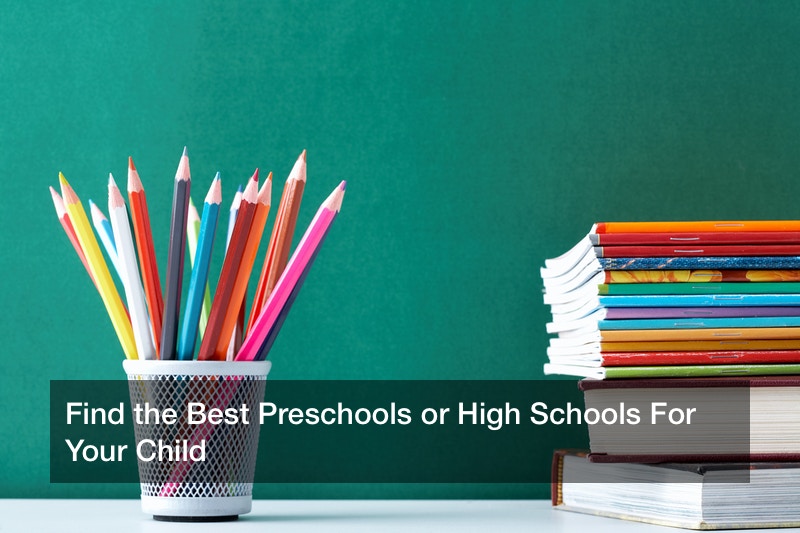
Every child needs a good education, and parents are deeply invested in finding the best preschools for their young children or the best day schools or best private schools for older children. Parents may start the search for the best preschools for their child when that child is first old enough, for when families move to a new area. The best preschools may have well-paid and qualified teachers, as well as well-funded premises or ample learning toys for the kids. And for older kids, finding a good public or private middle or high school is a priority. What should parents keep in mind when finding a good education for their children?
Finding the Best Preschools
Preschool is the education for a young child before kindergarten starts, and this can give a child an edge on classmates who didn’t at tend preschool. When a parent’s child first becomes old enough for such a school, or when a family moves to a new area, finding the best preschools will be the first thing on the parents’ mind. Such a search can start with gathering a list of such schools in one’s area. Parents can consult their friends, or they can search online. A search query such as “best preschools Miami FL” or “best preschools Boston MA” can yield a list of names. Another method is to search with the family’s ZIP code. Either way, the parents will find a list of schools to try out.
Not all schools are the same. Parents can visit different preschools with their child and start striking names off the list based on any number of factors. Price is just one factor; distance may be another, as it may be a hassle to drive their child a long way for preschool. Once on the campus, the parent can assess the school in terms of funding, coursework, the quality of the teachers, and more. And of course, the child’s own input is important too. A three-year-old isn’t concerned about price or a teacher’s credentials, but he or she may feel uncomfortable or frightened by some schools or teachers. A child must be calm, cooperative, and happy in a school and around the teachers and other kids. If this is the case, a preschool may be very promising. But what about later education?
Middle and High School
American children must attend school from kindergarten through 12th grade, or K-12, and the finest public or private schools are where the best education can be had. Finding a great elementary, middle, or high school for an older child is not much different from finding a preschool. Here too, the parents can search for local schools of the intended type by area or ZIP code, and start assessing them. This time, there are some new factors to consider, such as a child’s more developed interests (such as sports or art programs) as well as public vs private schools.
Public and private schools are a major divide in how American education works. Public schools are federally run and regulated as well and standardized, and publicly funded. They are inexpensive or even free for the child to attend, but they may not offer some of the cutting-edge services that private schools do. Private schools, by contrast, are privately funded and self-regulated, hence the name. These schools are a minority, often accounting for close to 25% of all American schools, and they have only about 10% of the American school population. But these schools tend to have very high graduation rates, and over 90% of private high school graduates go on to college, comparing favorably to the roughly 50% college attendance rate of public school students. Counseling at private schools is another factor here. At private high schools, counselors spend nearly 55% of their time on college prep for their students, much more than the 22% that public school counselors spend on that. Private schools tend to have high tuition, however, putting them out of reach of many families.
Parents can evaluate middle or high schools based on their distance from home, staff quality, graduation rates, and extra programs such as sports teams or a marching band. The student must feel comfortable, and not face bullying or undue stress.
